Today I’m coming in hot with a quick tip just in time for two things that tend to bubble up to the top of folks’ financial radar in the month of December:
1. Minimizing your tax bill and
2. Doing a bit of charitable giving.
What if I told you that you could leverage your financial assets (good ol’ stocks and bonds) to pay less taxes and give more generously?
What if I told you that it’s really easy to do this?
What if I told you that every time you donate a share of Tesla stock to a 501(c)3 charitable organization, Elon Musk will match your donation dollar for dollar?
Okay that last one was stupid. Sorry. I lost my mind.
OUR BASELINE BELIEF
Before we get too deep into how you can optimize your generosity dollars, I’d like to quickly review why we think giving (financially and otherwise) is a critical marker of the Abrahamic household. One of our foundational principles around these parts is that money is a training ground for the Biblical ruler. Meaning: God hands you money, in part, so that you can learn to be a good manager. Succeed at stewardship over something as easy to come by as dollars, and you just might find yourself entrusted with something that really matters– like, say, men’s souls. As a good steward of money, you’re the one who decides where to put it. (…and that does NOT mean that the holiest thing you can do with every dollar that comes your way is jettisoning it out of your management as quickly as possible. Most of what I heard growing up in Baptist Megachurchland was in direct contrast to this truth. They told us that the best, godliest thing–the ONLY godly thing, really–was to give it away. Preferably to them!)
Nonetheless, giving IS a KEY responsibility for a good steward, due largely to the fact that a good steward of financial resources ends up having more than he needs to cover their own household. As you learn to handle money, you’ll have extra (I promise), and you’ll eventually be able to give above and beyond what you might previously have considered possible. As that reality unfolds, you’ll want to give to your unique family vision – never mindlessly or through some auto-draft strategy that feels like a disconnected box-checking exercise. If this is all sounding a bit foreign to you, stop now and take a quick spin through our series, A Unified Theory of Giving (yes, all 4 parts).
HOW DO YOU DO YOUR GIVING?
Let’s assume that you’ve got some money to give and you’ve found a charitable organization that lines up nicely with your family’s unique calling and mission on this earth. (For what it’s worth, you don’t HAVE to give to a 501(c)3, which is a registered, tax exempt charity like your church or Voice of the Martyrs. Some families will find that their calling doesn’t match up with a charitable organization or church group. Obedience is way more important than a tax break, so if that’s you, we say, “give cheerfully, tax implications be damned!”) Others of you would like to give to a 501(c)3 and don’t own any investments in a taxable account. If that’s you, you can write a check to your charitable org and proceed with this article for future reference because it’s not going to help you this year. But some of you readers (verily, the ones for whom I write this piece) would like to give to a charity AND own some stocks and bonds in a taxable (that means a non-retirement) account. For you, I have a nice little hack:
THE GIVING HACK (FROM TAXABLE ACCOUNTS TO A 501(c)3)
If you do own a stock, for example, in a taxable account, you will have to pay taxes on the gains you realize if you sell that stock. Let’s imagine you bought a share of Abraham’s Wallet stock (just go with me and envision a future in which we’re a public company. Come on, it’ll be fun) for $500 and due to our intrepid content creation that share is now worth $1,000. Well if you sold that share (why would you? Man, beats me. I’d hand that down to the grandchildren!), you would owe capital gains tax on $500, which is the amount of gain you would realize on your stock. If possible, we’d like to find a way to NOT pay that tax while also not ending up in jail for tax evasion. So…
Being the generous chap that we’ve always known you to be, you decide to make a $1,000 gift to your local church. You have at least two options for how to go about this:
- You could give them $1,000 in cash. You will get a tax deduction for this gift of $1,000, which is great. But what if, instead, you put that $1,000 for giving back into your pocket, and…
- You gave your church that share of Abraham’s Wallet stock? Because it’s worth $1,000, you still get a $1,000 tax deduction for the gift. But now you can take your $1,000 cash and go buy the very stock you just gave away. If you go this route there are benefits:
- Because you paid $1,000 for your share of stock, you no longer have to deal with that $500 of capital gains whenever you (foolishly) decide to liquidate your position in Abraham’s Wallet. Eat it, tax man. Capital gains on this deal is $0. DECREASED TAX BURDEN BRO.
- Even better, because your church is a qualified 501c3, they are tax exempt and can sell that share of stock immediately upon receiving it with no tax consequences. (Churches know how to do this, receiving gifts of stock is not uncommon for established 501(c)3s.)
What do you think of that? Pretty slick moves, right?
Let me reiterate by putting this into a table. I’ll assume here that you’re in the 22% income tax bracket and that you are in the 15% capital gains tax bracket. Let’s see the difference between donating $1000 cash and donating $1000 in a stock that has increased in value by 50% to a charity:
| Mode of Giving | $1000 of Cash | $1000 Appreciated Stock |
| Income Tax Savings | $220 | $220 |
| Capital Gains Savings | $0 | $75 |
| Total Tax Savings | $220 | $295 |
That’s a 34% boost to your tax savings, hoss! This is nothing to sneeze at, especially if you’re giving tens of thousands of dollars away every year. As the numbers grow along with your wealth, this can be a meaningful way to use your giving to also unwind some of the “baked in” tax liability in your investment portfolio.
Before I leave you excited about this strategy but without the slightest clue as to how you might actually implement it in your own financial life, I’ll give you some specific tips on easy ways to make this happen:
- First, be sure you’re working with a taxable account. If you withdraw money or shares from, say, an IRA or 401k, you’ll owe penalties and taxes. No good.
- Second, ask the target recipient of your gift (the 501(c)3 charity) whether they have a brokerage account. If your church (or the local reptile rescue foundation, or whatever) that you’ve chosen to support has their own taxable brokerage account, you can simply ask your broker to transfer the shares over to their account.
But what if this organization is tiny and doesn’t have such an account or the time to open one?
In this case you can use what is called a Donor Advised Fund. A Donor Advised Fund is a charitable giving fund that you can transfer stocks or bonds into (you can also fund it with cash) and you get to say how those assets will be invested.
- You get the tax deduction when you transfer to the DAF, but…
- You also get to decide when and to whom those assets are distributed.
- You can transfer the assets to the DAF and then let them grow for a while, or…
- You can distribute some or all of the money right away – it’s up to you. Donor Advised funds can be used for all sorts of tax planning purposes (we talked about them when we covered the ‘bunching’ tax strategy), but one thing they are good for is turning appreciated assets into a check that your local organization can cash without any hassle. I’m partial to the Donor Advised Fund offered by Fidelity, but there are many good options out there.
REVIEW
Just to recap: instead of giving straight cash money to your charity of choice, you could:
- Give them appreciated stock via the methods above
- Re-buy whatever stock you just gave them, and
- Check “giving” as well as “be smart with taxes” off your to-do list.
If you only hear one thing from this little giving tip article, it’s that we want you to give to your family vision in whatever ways that makes sense for your current financial picture. But if you’re asking questions like “how can I optimize my tax situation while funding our family’s generosity goals?”, then giving appreciated assets can be one great option there. And if you need help, please look me up! I’m always happy to provide an opinion on strategies like this one that blend smart financial planning with your unique mission and place in the Kingdom.
*Mark Parrett is one of the founders of Abraham’s Wallet. When not blogging for you here, he’s raising a family in Salt Lake City, UT and working as a financial planner at Outpost Advisors.






